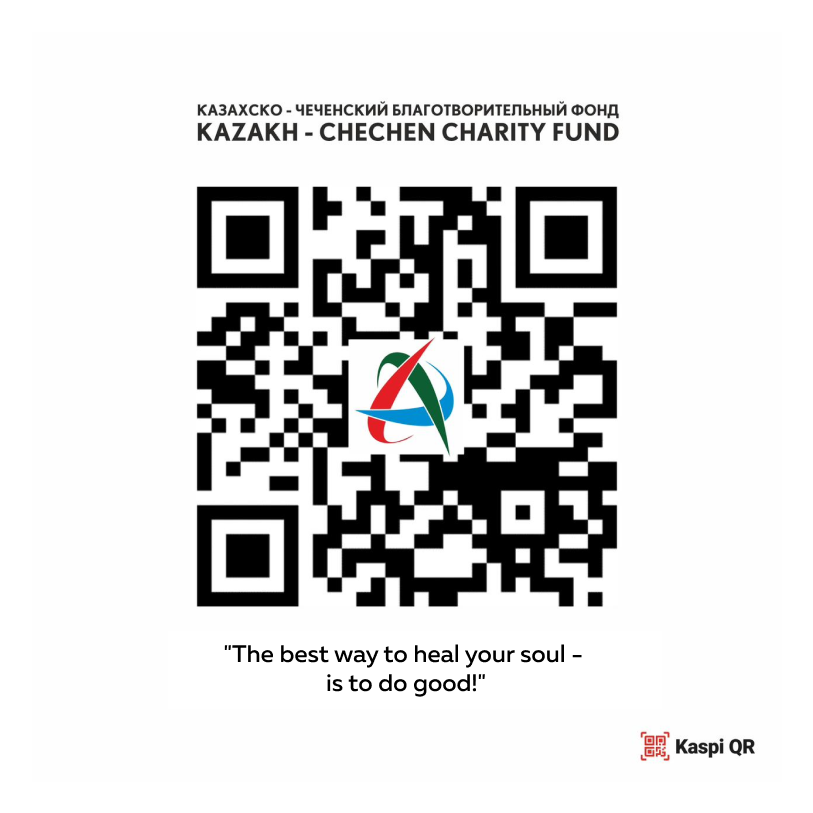
As a result of the deportation, the peoples lost about half of their population at that time. In order to justify this genocide, the Stalinist regime made up tall tales, accusing them of betrayal and complicity with the germans.
And so this long-suffering Kazakh land was chosen as a place of settlement for Chechens, Ingush and representatives of other peoples of the Caucasus. Stalin-Beriev's calculation was simple: the Vainakhs who survived the journey would surely perish in Kazakhstan from cold (it was not by chance that the action was carried out in winter) or starvation. A certain place was also given to such a factor as the struggle for survival, which, as is well known, does not do without casualties.
But the "person with a wolf's heart" and his environment, deciding that simple people like them live according to the wolf's laws, when the strong destroy the weak.


Having gone through the hardest trials themselves, having seen a lot of grief and suffering, having already gone through the horrors of Stalin's repressions, Kazakhs quickly figured out where the lies were and where the truth was. They didn't leave in trouble another people who had been victimized by the same system. Together with russians, koreans and ukrainians, they shared their shelter and gave them a place at the hearth.
By the malicious intent of those who led the country, people were put in extreme conditions when it came to life and death. Hunger, cold and disease were rampant everywhere. Many were not spared. But the people survived. It was thanks to their unity, mutual support, mercy and compassion for each other, readiness for self-sacrifice.
Kazakhs, chechens, ingush, russians, ukrainians, germans and poles lived as a single, friendly family. No one ever remembered their nationality. We overcame difficulties together, rejoiced together, shared sorrow together. Despite the fact that life was very hard, no one felt helpless, because they knew that if something happened, the whole world would come to help and wouldn't leave them in trouble.
Everyone lived very friendly in those years. The chechen harmonica, the kazakh dombra and the russian balalaika played in succession.

They say: there is no bad without good. The common tragedy united peoples, brought them closer together, made them spiritually richer "Tatulyk - tabylmas bakyt" - kazakh people say. It is true. Friendship is a great happiness to be cherished and nurtured. Today there are many families among chechens and kazakhs who are bound by the best feelings. Hundreds and hundreds of thousands of people call themselves friends, brothers and sisters, and these are not just words.
If we look back at the passed path, at our common history, starting from 1944 of the last century, we can cite hundreds, thousands of examples of mercy, kindness, compassion for each other of representatives of different nationalities. And even readiness for self-sacrifice.
In the Caucasus for chechens, Kazakhstan is the closest country after their native Fatherland. When I come to my homeland of ancestors, I don't feel that I have left Kazakhstan. Many people who were born here.
You can often hear kazakh speech. The enchanting melodies of the dombra can be heard in cars. And the memories of Kazakhstan are endless. You get into an atmosphere where you can almost tangibly feel how strong the bonds of brotherhood between the two peoples are.


JSC Bank CenterCredit
BIK KCJBKZKX
| USD | KZ768562203235421681 |
| RUB | KZ498562203335421698 |
| KZT | KZ868562203135421388 |
| EUR | KZ168562203235421694 |